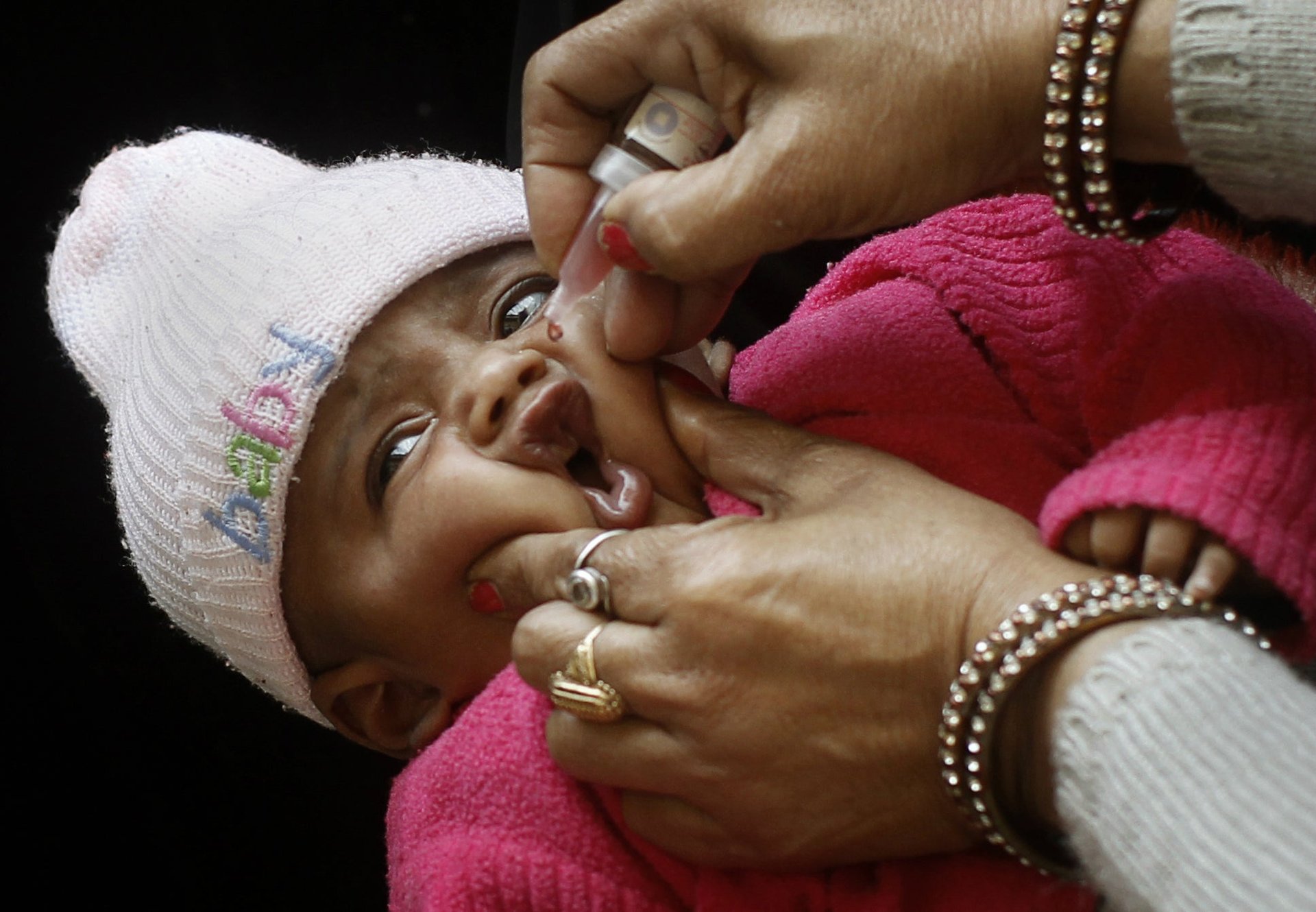A new Indian-made vaccine is proving successful in tackling the second-biggest cause of death in children
Almost seven million children under five died in 2011, according to the World Health Organization, but the biggest culprits are not, as you might expect, AIDS, malaria and measles. Pneumonia is the biggest killer globally. And, the number two threat—diarrhea—kills 100,000 children annually in India alone.

Almost seven million children under five died in 2011, according to the World Health Organization, but the biggest culprits are not, as you might expect, AIDS, malaria and measles. Pneumonia is the biggest killer globally. And, the number two threat—diarrhea—kills 100,000 children annually in India alone.
There’s new hope for preventing diarrhea-related deaths now with the announcement Tuesday that a cheap, India-made vaccine had produced strong results in a clinical trial. Not only could it save many lives, but it is also an excellent business opportunity.
Bharat Biotech, a pharmaceutical company involved in the clinical trials, has promised to sell the vaccine for just $1 a shot, compared to the global price for alternatives set at $2.50, and an over-the-counter price in some countries as high as $60. The vaccine, dubbed Rotavac for its targeting of the rotavirus, reduced severe cases of diarrhea in trials by more than half during the first year of life.
Dr. Vijay Raghavan, secretary of India’s Department of Biotechnology, said that the vaccine could save the lives of thousands of children each year in India. It is likely to go on the market in 2014, subject to final government approval, and its developers hope that it will help to improve India’s dismal under-five mortality rate, which was 61 per 1,000 in 2011, according to the World Bank.
For Bharat Biotech, selling each vaccine shot at $1 is a shrewd move. The company, which has received money from charities such as the Bill and Melinda Gates Foundation, has been lauded for its efforts to extend access to medicine, particularly vaccines. From its inception in 1996, the company has expanded substantially, and by the look of the Indian market, there’s plenty more room to grow.
A 2012 report from Global Business Intelligence Research forecast that the Indian vaccine market would grow 20% a year to 2016–from $350 million to an industry worth $871 million. But estimates vary. Industry publication BioSpectrum reported that in 2011-12 the Indian vaccine market was worth $600 million. Some companies doubled in size compared to the year before.
Whatever the market is worth, all of the estimates make clear that it has enormous potential. This has not escaped the notice of western pharmaceutical giants such as GlaxoSmithKline, which in January announced a joint venture in India to produce a six-in-one vaccine with Biological E. Around 70% of vaccines manufactured in India are exported, much of them to organizations like UNICEF.
A $1 vaccine that could save thousands of lives will justifiably win Bharat Biotech goodwill, but it is also a chance to corner a larger share of a growing market.